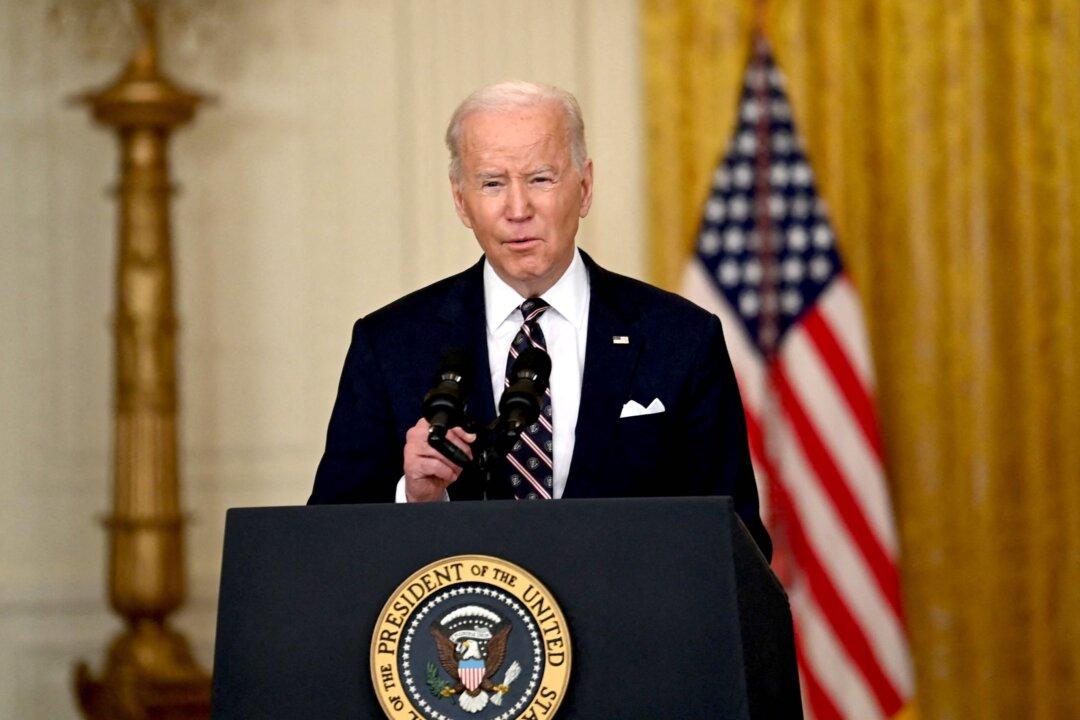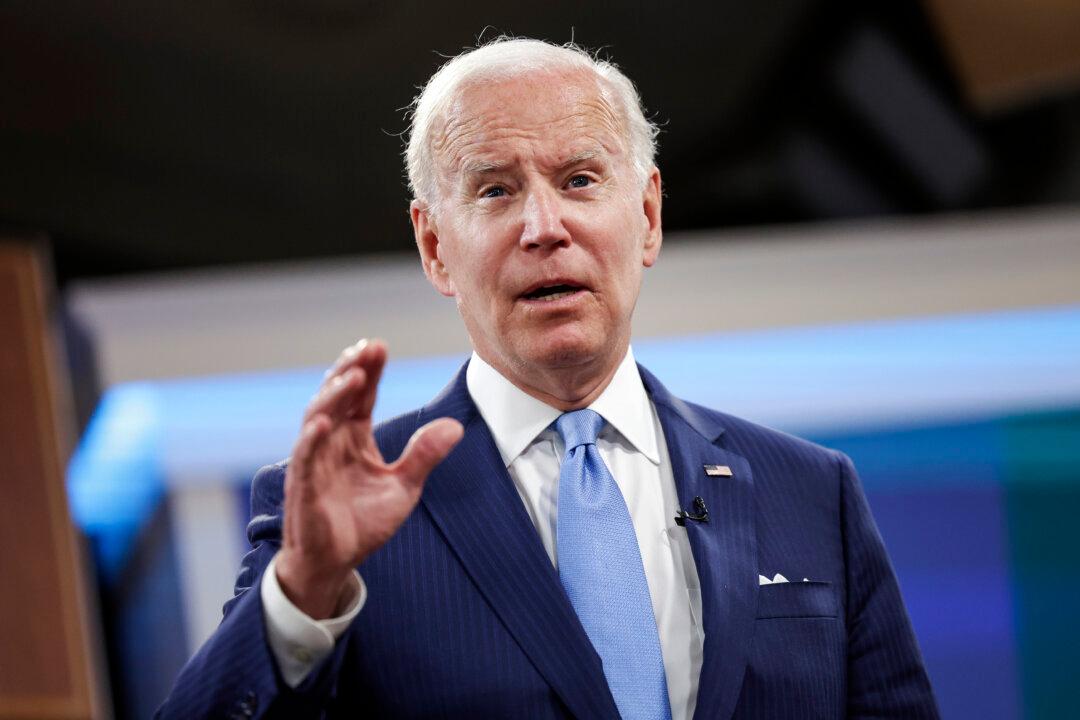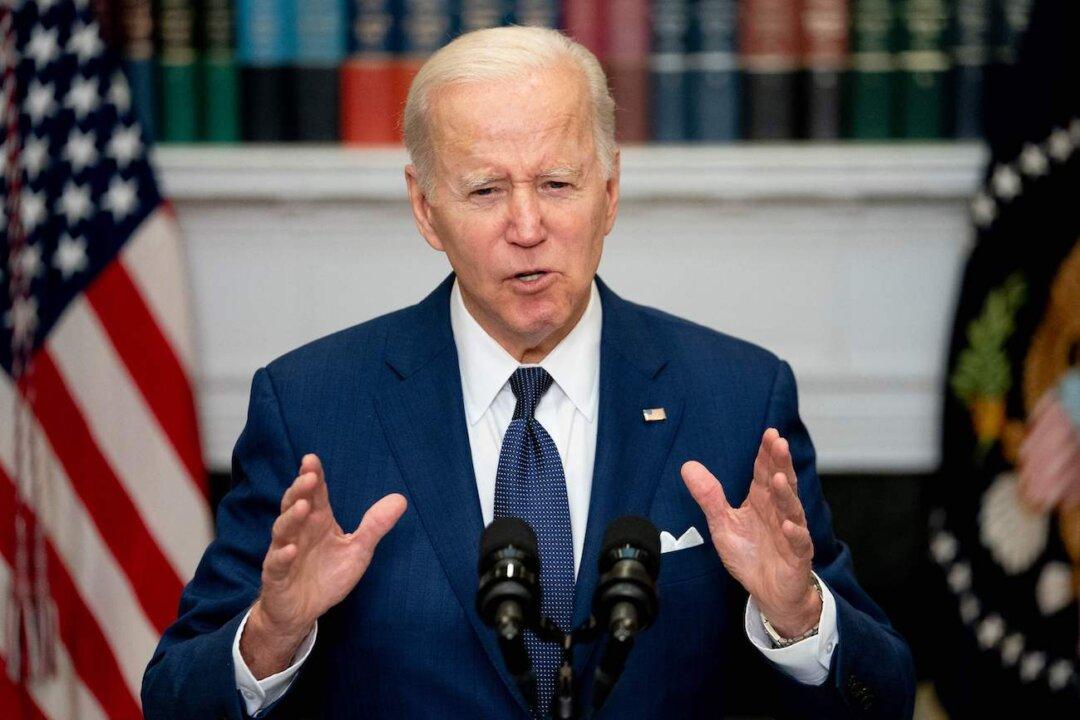President Joe Biden on Feb. 23 announced sanctions against the company behind the construction of the Nord Stream 2 natural gas pipeline because of Russia’s actions in Ukraine, after Germany put a hold on the project that connects Russia and Germany.
The sanctions affect Nord Stream 2 AG and its corporate officers, according to a White House statement on Feb. 23. The Swiss-based firm’s parent company is Gazprom, the Russian state-owned energy giant.




